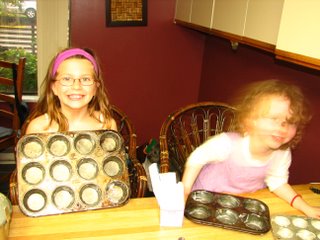Apartment Hunting with Children - It's not all white elephants

Unless you're comfortable living in the neighborhood of a Chernobyl-like nuclear meltdown, searching for rental accommodation is a guaranteed pain in the keister. In Vancouver in particular, where prices soar above those anywhere else in Canada , finding an affordable, attractive rental for your family will be a challenge that at times can feel insurmountable. Within a week of giving notice at your last home, you'll no doubt begin to feel a surge of regret: “What if I don't find anything?”
Read on for some pointers and tools that will help alleviate some of the stress most single parents feel looking for suitable accommodation.
Tips:
1. Plan ahead. Start looking before you give notice. Think about what areas of town are you'd like to live in, what kind of place is realistic and what you can afford. Reading the classifieds and the resources listed below, and going to look at available places will give you a good idea of what the market is like at any given moment. Also, if you're looking for co-op housing, you'll need to begin your search and the application process months (and in some cases, years) before you expect to sign a lease.2. Compile a list of essential information that landlords will ask for: Employment history, banking history, proof of income, references from past landlords, other references. Always bring this information with you to viewings.
3. Contact friends to let them know you're looking. Sometimes this will be the quickest route to finding a new place, and friends are sometimes the best references.
4. Use several resources in your search. You'll find different websites specialize in different types of accommodation – some list co-ops; others are for university students. Some attract low income families; still others feature luxury condos for in-town movie execs. See below for a thorough list of mostly Vancouver-based resources.
5. Always ask specific questions before going to see the home. Important ones include:
- Is this a basement apartment (they !#$%ing seldom seem to say it outright in the ads!)
- How many square feet is the place? (kids and tiny homes don't go well together)
- When is it available? (Little point in going to see a place that isn't available for 3 months)
- Is there a yard? Is the yard secure?
- Do you require a lease? How long?
- Do you mind huge house parties with strippers and Columbian drug cartel types? (just kidding)
7. If you have particularly rambunctious or noisy children, consider leaving them at home or with a child minder. There's no question that most landlords are on the whole predisposed to childless tenants. Certainly an absent child will serve you better than a noisy one.
8. Don't lie about having children on your application.9. Stay calm. Even if you're running behind, you're bound to find something if you exhaust all the resources below. If you find yourself in a bind, and still don't have something as you're nearing the end of the month, consider taking something you don't like but which doesn't require a lease - that way you can start the search again as soon as you've recovered from the first disaster!
Use these links to get you started on your search in the BC region. For those outside this area, use Google and type "apartment rentals" followed by your city/town name in the search field. You should find numerous links there. Good luck.
Co-op Housing
Co-op Housing
Co-operative Housing Federation of Canada
If you have more suggestions and links to add to the list, please contact me at douglashadfield@yahoo.ca









